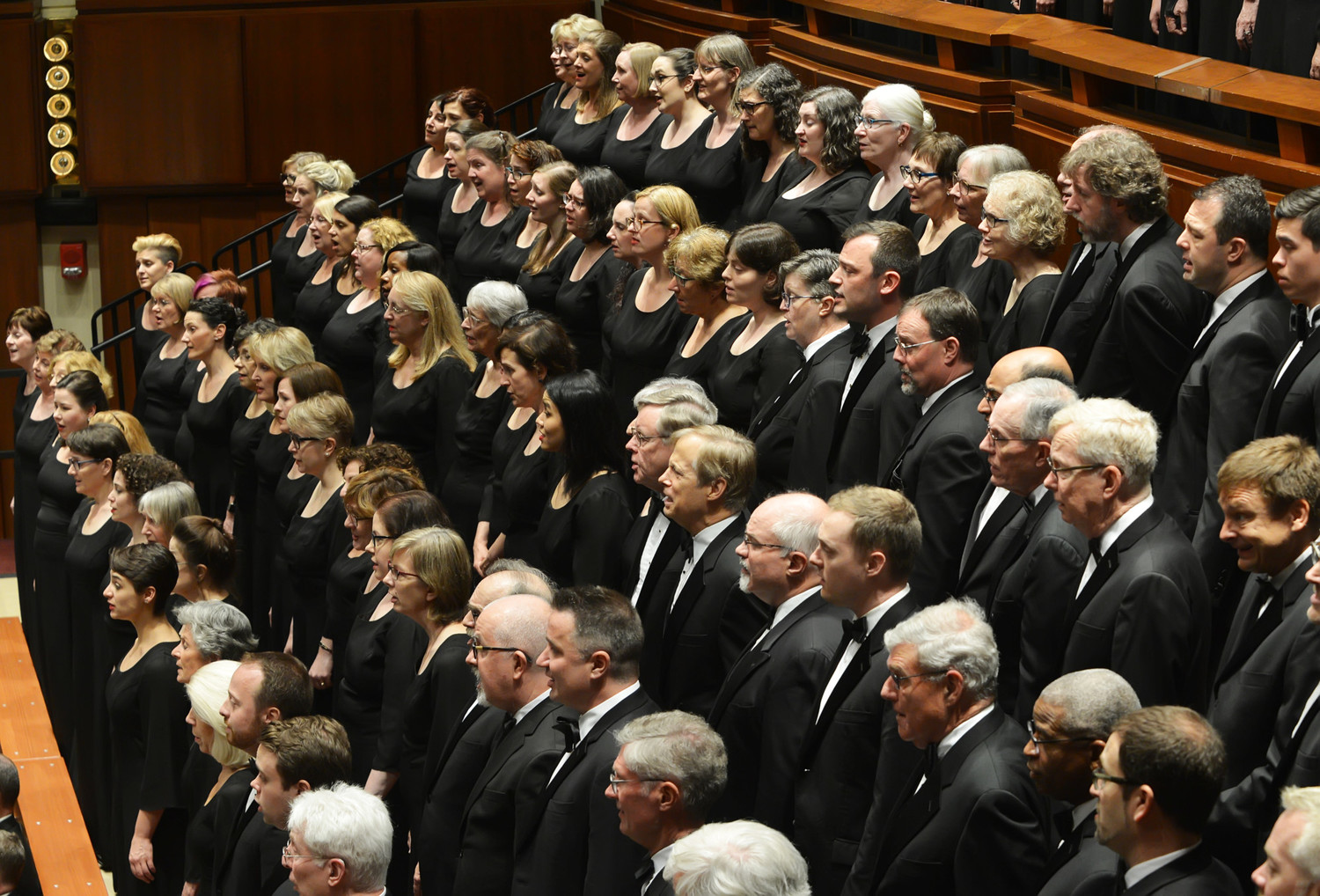Review: Choral Arts Society Of Washington Finishes Season In All-French Program At Kennedy Center Concert Hall

When Scott Tucker, in his pre-concert introductory remarks before Sunday's Choral Arts Society of Washington performance, said that composer Florent Schmitt's style in Psalm 47 is "off the wall," he wasn't kidding. The 1903 setting for chorus, soprano, orchestra, and organ also includes brass, percussion, harp, timpani and sounds more like Mahler, Wagner, or Schönberg than the work of a man trained in composition by the always diplomatic innovator, Gabriel Fauré. The gigantic, melodramatic, and ever dynamic piece--fun for musicians such as these, challenging, hard to sing, dandy--concluded an interesting program in the Kennedy Center Concert Hall.
Schmitt had a point; the text for Psalm 47 begins with exclamations and exhortations to "clap your hands." He punctuates with snare drums, and the singers of the Choral Arts Society get to repeat "frappez des mains" often enough that one can forget it's a prayer rather than a jam session. But Schmitt doesn't forget; perhaps taking a leaf from his teacher, Schmitt suddenly writes an à cappella section for the chorus to sing: "chantez la gloire. . ." ("sing the glory of God with songs of holy joy." It's a breathtaking few moments amid all the drama in the orchestra, moments that remind everyone in the room that "psalm" means "song" and that the Choral Arts Society, gleaming brightly in this solo section, are the center of of attention at this concert, not the tuba player. (Sorry, John W. Banther; great job, though.)
Soprano Alexandria Shiner shone indeed in an all too brief section which resembled the way Mahler and Richard Strauss sometimes used solo singers as if they were instruments of the orchestra. (Good news: Shiner will perform her first Ariadne at Wolf Trap this summer.)
The second half of the concert had opened with a fine performance of Sarabande, op. 93 composed in 1893 by Fauré's teacher, Camille Saint-Saëns. Sweetly played by the string sections and with outstanding solo work by concertmaster Karen Johnson, Artistic Director and Conductor Scott Tucker craftily programmed this Saint-Saëns calm before the Schmitt storm and conducted each accordingly.
Associate Conductor Brandon Straub led the curtain raiser, a setting of Psalm 24 (1916) by Lili Boulanger. The Choral Arts Society chorus, tasked with competing for focus with brass fanfares and bold organ strokes, sang with energy and clarity. The psalm begins with assertive text: "à l'Éternel la terre. . ." ("the earth is the Lord's. . .") and concludes with familiar text: "Élevé vos linteaux. . ." ("Lift up your heads, o ye gates. . .")--triumphant text, score, ensemble.
Scott Tucker then took over the baton for the Fauré Requiem, op. 48 (1893/orchestrated 1900), the only Requiem in the canon that believes in rest; Fauré just comforts. The very gentleness of the piece makes it difficult for a chorus to sing because pianissimo functions as a re-set button. There are a few forceful moments in the Fauré Requiem; for example, the penultimate section of the Agnus Dei implores the Lord to grant eternal rest to the dead: "quia pius es" ("by your grace"). But all seven sections of the Requiem end in double or triple p. Not only does the Choral Arts Society excel at singing softly, but they the perform Fauré from memory and with perfect Latin diction. Fauré's writing for the orchestra and organ complements the choral score, but in the Offertoire those few bars without accompaniment show off the high skill of this very particular choir. So do the moments of unison singing later in the Libera Me. The Choral Arts Society truly sings as one voice.
Baritone Trevor Scheunemann contributed solidly to his bits of the Offertoire and Libera Me. Soprano Laura Choi Stuart sang the Pie Jesu impeccably (also from memory). Her clear lyric sound gave the piece enough mature warmth to delete memories of boy soprano performances, no disrespect, Maestro Fauré. Tucker conducted as if nobody knew he was there, but they couldn't have done it without him.
For information on the next season, its 55th, of The Choral Arts Society of Washington, visit choralarts.org.
Add Your Comment
Videos
